When considering the purchase of a dump truck, the central question often revolves around cost. However, determining the price of a dump truck is not as straightforward as one might think. The cost of a dump truck can vary significantly depending on several factors including size, capacity, manufacturer, new or used condition, and the specific needs of the job it will be performing. Understanding the variables that influence the price is crucial for making an informed decision that aligns with both your budget and your operational needs.
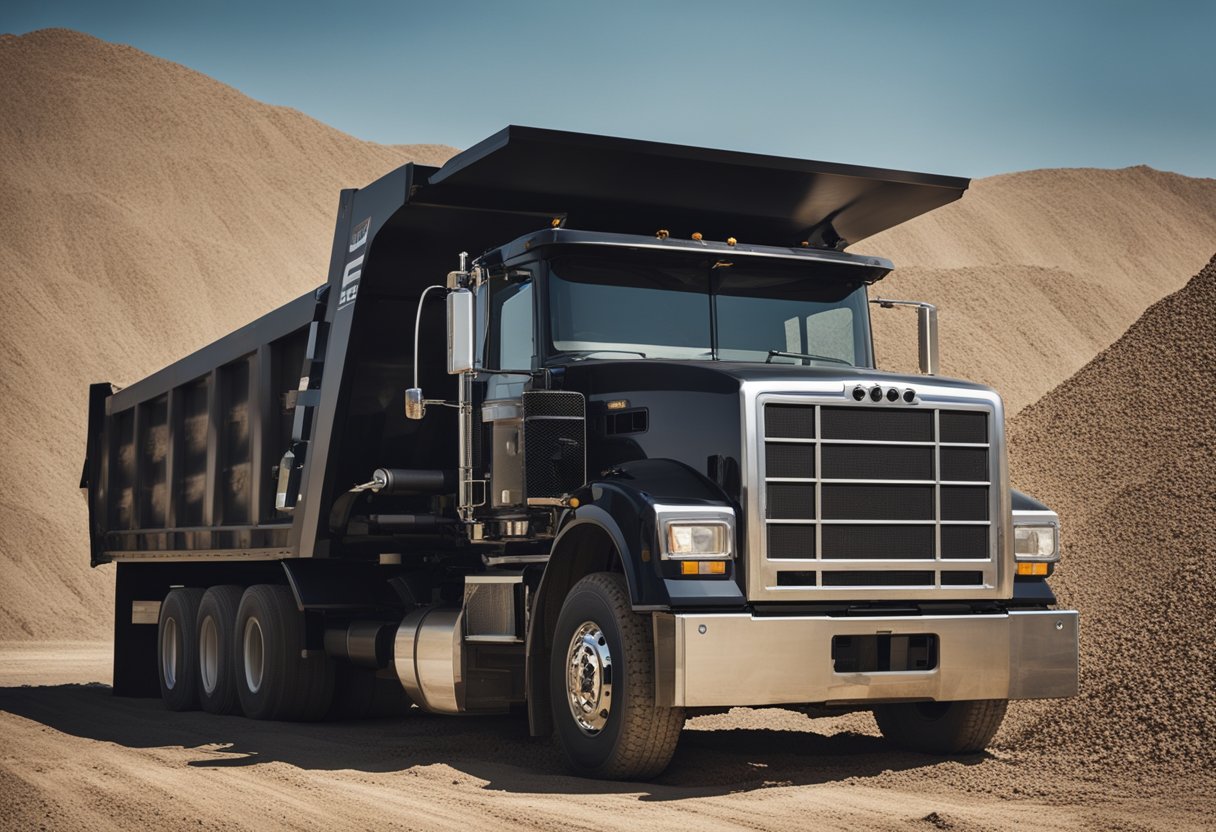
The actual cost of owning a dump truck extends beyond the initial purchase price. Prospective buyers should also consider the long-term operational costs, which include maintenance, fuel, insurance, and potential financing fees. Moreover, it’s essential to pay attention to the truck’s technical specifications and capabilities to ensure it meets the demands of the intended use. Recognizing industry trends and insights can also provide valuable information that can influence both the cost and choice of the dump truck that is right for your business needs.
Contents
Key Takeaways
- The price of dump trucks can vary widely based on multiple factors.
- Long-term ownership costs substantially contribute to the overall financial commitment.
- Technical specifications and industry trends play a significant role in choosing the right dump truck.
Understanding Dump Truck Costs
https://www.youtube.com/watch?v=vWRw5U3ZYik&embed=true
When considering the acquisition of a dump truck, it’s essential to understand that the cost is more than just the purchase price. From the initial investment to ongoing financial commitments, various factors affect the total cost of ownership.
Initial Purchase Price
The initial purchase price of a dump truck can vary considerably. A new heavy-duty dump truck can carry a price tag ranging from $100,000 to $150,000, while smaller, medium-duty trucks might cost less. The specifics of each truck, such as the capacity and features, significantly influence the upfront cost.
Financial Considerations
Beyond the purchase price, other financial considerations should be factored into the budget. Owning a dump truck includes expenses such as insurance, fuel, maintenance, and potential financing costs if you opt for a payment option. These contribute to the total cost of investment in the dump truck.
New vs. Used Dump Trucks
The debate between investing in a new dump truck or a used model is crucial. New trucks offer the latest technology and less wear, but they come at a higher cost. Conversely, used dump trucks can be a more budget-friendly option, though they may carry the risk of higher maintenance costs down the line.
Cost Variations by Size and Type
Cost can also vary based on the size and type of dump trucks. For instance, standard dump trucks typically cost less than specialized models, such as articulated dump trucks or end dump trucks, due to their complexity and capability.
Brand and Manufacturer Impact
Finally, brand and manufacturer reputation can impact the price of a dump truck. Renowned brands like Mack, Kenworth, Peterbilt, Caterpillar, and Volvo often command higher prices due to their perceived reliability and quality, compared with lesser-known manufacturers.
Making a Smart Purchase
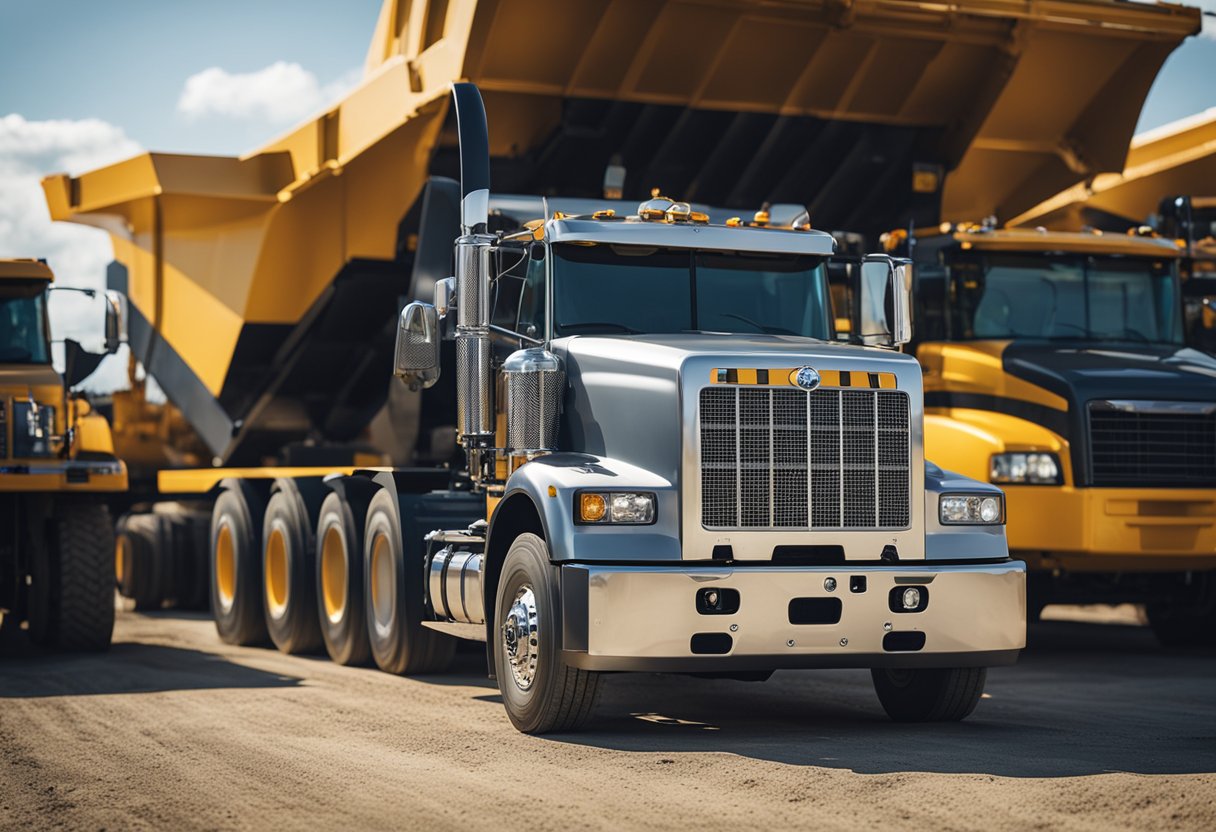
When investing in a dump truck, I consider the optimal match between my requirements and my budget. I explore financing options and dealer reputations, and prioritize reliability and thorough inspections before making a purchase.
Assessing Your Needs
Firstly, I evaluate what I need from a dump truck by considering the specifications such as power and torque that will suit my projects. I weigh the standard features against additional options, ensuring that the truck meets my specific operational demands.
Exploring Financing and Dealers
I then investigate the best financing options and payment plans that fit my financial situation. It’s crucial for me to find a trustworthy dealer who offers a transparent purchasing process and after-sale support.
- Financing Options:
- Bank Loan
- Leasing Company
- Dealer Financing
Inspection and Reliability Considerations
Lastly, I focus on the inspection and reliability of the dump truck. I might visit a mechanic for an expert’s perspective, ensuring that ongoing maintenance needs are manageable and within my budget.
- Inspection Checklist:
- Engine condition
- Hydraulic system
- Tires and chassis integrity
Ownership and Operating Costs
https://www.youtube.com/watch?v=xd1L65PTJ_s&embed=true
When considering the purchase of a dump truck, I assess both the initial investment and the ongoing expenses. The total cost of ownership takes into account factors like fuel consumption, routine maintenance, and insurance costs, which can substantially influence the long-term financial commitment.
Fuel Efficiency and Costs
Fuel costs can be a major expense in the operation of a dump truck. I monitor fuel efficiency closely since it directly impacts the operation’s profitability. For used dump trucks, fuel efficiency tends to decline over time, which can increase operating costs. Regular maintenance can help mitigate some of these effects and preserve fuel efficiency.
Maintenance and Repairs
Maintenance and repair costs for a dump truck include regular services such as oil changes, tire rotations, and brake inspections. Key components like engines and hydraulics require careful attention to ensure the longevity of the vehicle. Over time, wear and tear can lead to more significant repairs, which can be costly. Here’s what I keep in mind regarding maintenance costs:
- Engine: Regular checks and timely repairs or replacements can prevent costly downtimes.
- Tires: Frequent inspections and correct tire pressure can extend tire life.
- Brakes: Due to the heavy loads, brake systems wear out faster and need consistent maintenance.
- Hydraulics: Inspections for leaks and pressure issues are critical to maintain operational integrity.
Insurance and Regulatory Expenses
Insurance is fundamental to protect my investment in a dump truck. It can cover accidental damage to the truck, liability for damages or injuries caused by the truck, and sometimes even downtime during repairs. Besides insurance, I must also budget for regulatory expenses such as permits and vehicle taxes, which vary depending on the state and the nature of the dump truck’s use.
By keeping these factors in mind—the fuel efficiency, the ongoing maintenance, and the insurance and regulatory expenses—I can better anticipate the true cost of owning and operating a dump truck.
Maximizing Dump Truck Longevity
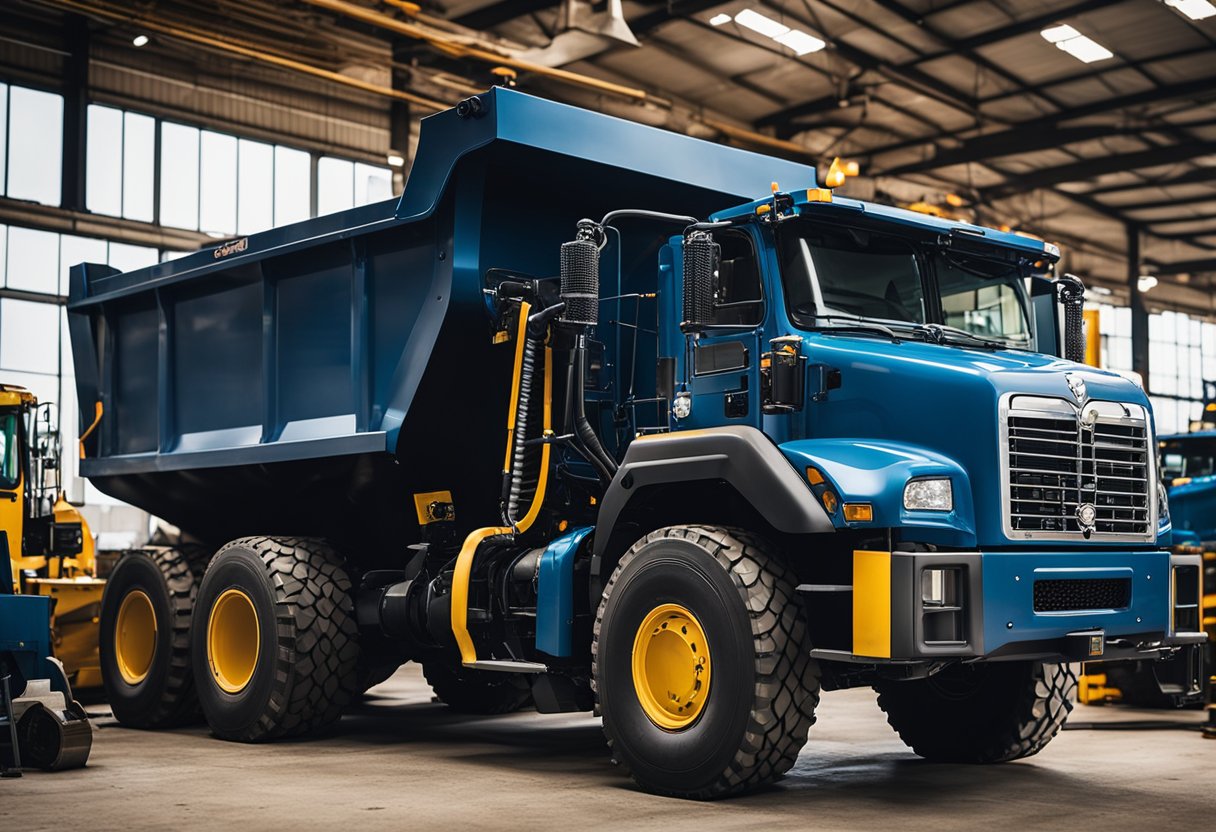
Investing in a dump truck is a significant financial decision, and I understand the importance of extending the lifespan of this valuable piece of equipment. My approach to maximize a dump truck’s longevity combines diligent attention to maintenance and meticulous care of the truck body and its components.
Proper Maintenance Practices
My maintenance regimen for a dump truck is rigorous and methodical, ensuring every aspect from the engine to the hydraulics receives regular attention. I prioritize:
- Routine Checks: I stick to a strict schedule of inspecting all critical systems, including brakes and engine performance, to spot any signs of wear or potential issues.
- Oil and Fluid Levels: I regularly check and change oil and other fluids to keep mechanical components running smoothly, minimizing the risk of overheating and mechanical wear.
- Part Replacements: I’m attentive to the condition of tires and other wearable components, replacing them as soon as their performance begins to decline.
I’ve found that keeping a detailed log of these maintenance activities not only helps in staying organized but also serves as a valuable record for predicting when future servicing might be needed.
Upkeep of Truck Body and Components
I spare no effort in maintaining the structural integrity of my dump truck. This involves:
- Regular Cleaning: Removing debris and dirt that can cause rust and corrosion to the truck’s steel body is part of my routine.
- Inspection and Repair: I meticulously inspect the dump body and components for stress fractures or damage, especially after hauling heavy or abrasive loads, which can impact durability. Any compromised areas are promptly repaired.
- Support Systems: I ensure the maintenance of hydraulic systems is never overlooked, as they are vital for the operation of the dump truck, affecting both performance and longevity.
By taking these disciplined actions, I contribute markedly to the longevity of the dump truck, safeguarding my investment and ensuring the machinery remains reliable and operational for years to come.
Technical Specifications and Capabilities
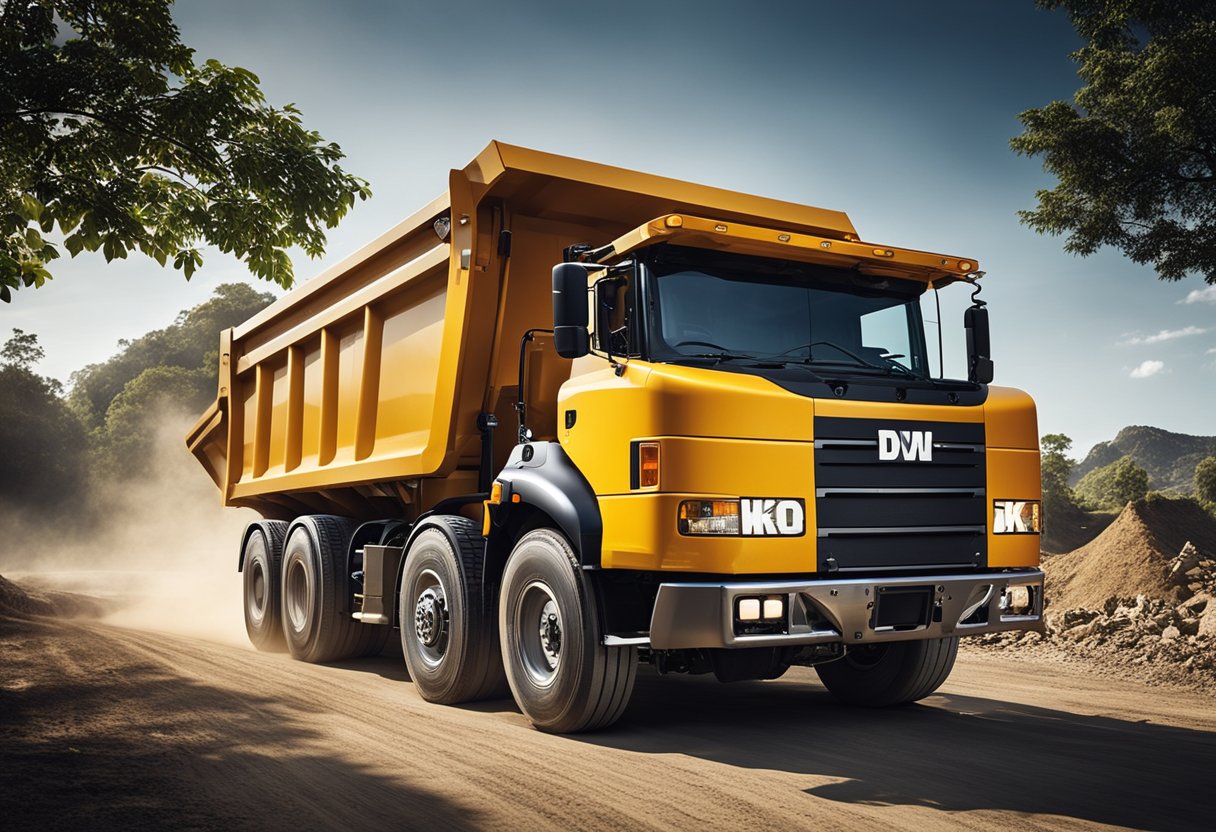
When considering the costs associated with dump trucks, it’s crucial to understand their technical specifications and capabilities. I’ll explore key areas such as engine power, transmission, and load capacity that directly impact performance and operational efficiency.
Engine Power and Performance
The engine is the heart of a dump truck, and its performance is often measured in horsepower (hp) and torque. Standard dump trucks typically offer a range of 300 to 500 hp, which ensures they can handle heavy loads and steep gradients. For instance, articulated dump trucks are designed to maneuver diverse terrains and therefore require robust engines with high torque outputs to maintain a steady power flow.
Transmission and Drivetrain
The transmission and drivetrain are responsible for transferring power from the engine to the wheels. These trucks usually come with a range of transmission options, including manual, automatic, and semi-automatic systems. An automatic transmission is capable of providing smooth gear shifts and improved fuel efficiency. A well-engineered drivetrain enhances a dump truck’s ability to utilize its power effectively, influencing both fuel consumption and job site productivity.
Load Capacity and Hydraulics
Lastly, load capacity and the hydraulic system play pivotal roles in the functionality of dump trucks. Load capacity can be influenced by the truck’s size and design, with some capable of hauling up to 400 tons. The hydraulic lifting mechanism is essential for unloading materials; it requires a reliable system to ensure the consistent lifting and lowering of the dump body. My focus on articulated dump trucks emphasizes their flexible frames and hydraulic steering, which allow for efficient load management in varied work environments.
By examining these specific areas, I can form a more precise understanding of a dump truck’s cost implications in relation to its technical aspects.
Industry Insights and Trends
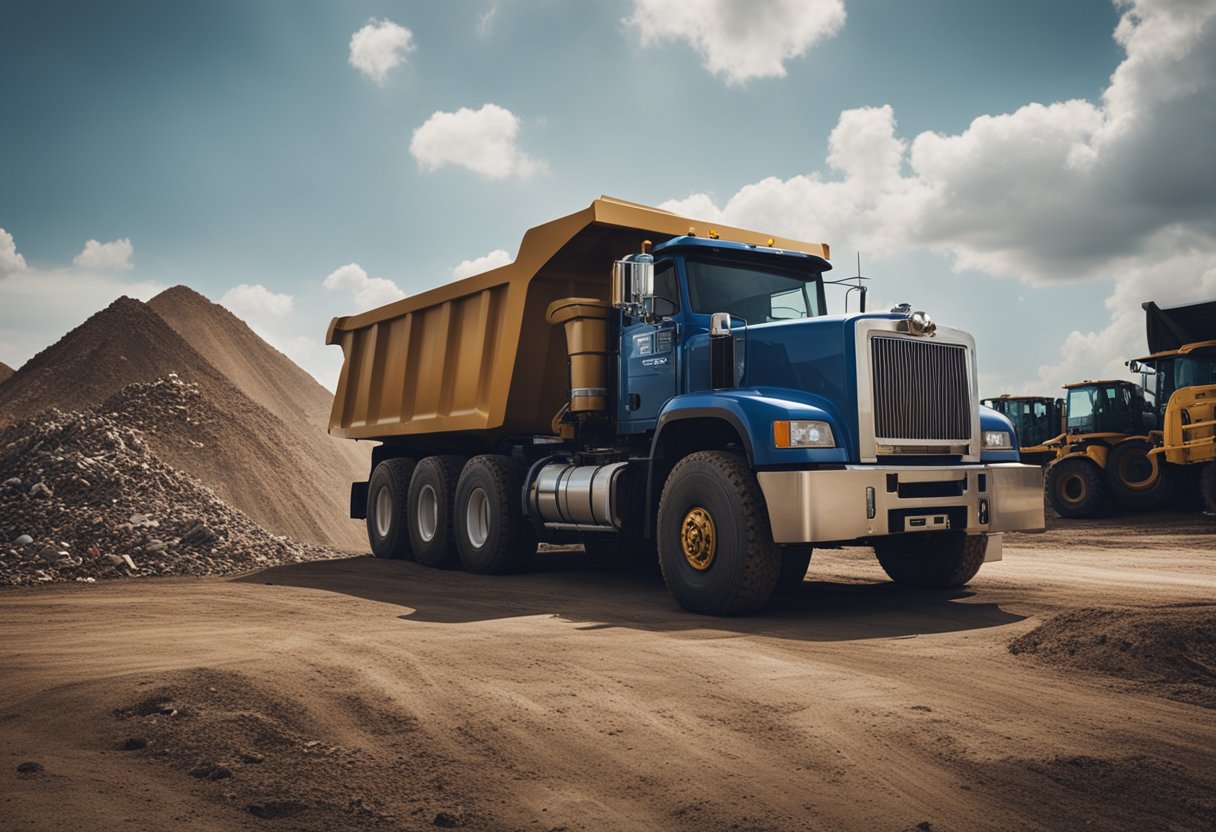
In analyzing the cost of dump trucks, it’s crucial to understand the current advancements in technology, market fluctuations, and the impact of regulatory changes on pricing.
Advancements in Dump Truck Technology
Technological improvements in dump truck design are driving the industry towards more efficient and environmentally-friendly vehicles. The integration of diesel-electric engines, for instance, provides a blend of power and fuel economy, essential for heavy-duty applications. My observations include noticing enhanced transmission systems that contribute to better overall performance and longevity, leading to potentially higher initial investment costs but lower operating costs over time.
Market Analysis
The market for dump trucks is diverse, with a range of options affecting the price tag. Brands play a significant role in determining cost; well-known manufacturers often command a premium for their heavy-duty and medium-duty models. The size of the vehicle and its features, such as load capacity and material quality, also affect the purchase price. As a knowledgeable industry observer, I see that investment in newer models with advanced features can lead to long-term savings for businesses through improved fuel efficiency and reduced maintenance costs.
Regulatory Changes
Regulatory changes often influence standards and expectations in the dump truck industry. Stricter emissions standards pressure manufacturers to develop cleaner engines and more efficient fuel systems. While this may increase the cost of new dump trucks due to the technology required to comply, it also signals a move towards sustainability. I’ve noted that these regulations not only affect the price tag of new vehicles but also the resale value of older, less compliant models.
By keeping abreast of these industry insights and trends, individuals and businesses can make more informed decisions when it comes to the cost and features of a dump truck, ensuring that their investment aligns with both their financial constraints and operational needs.
Conclusion and Next Steps
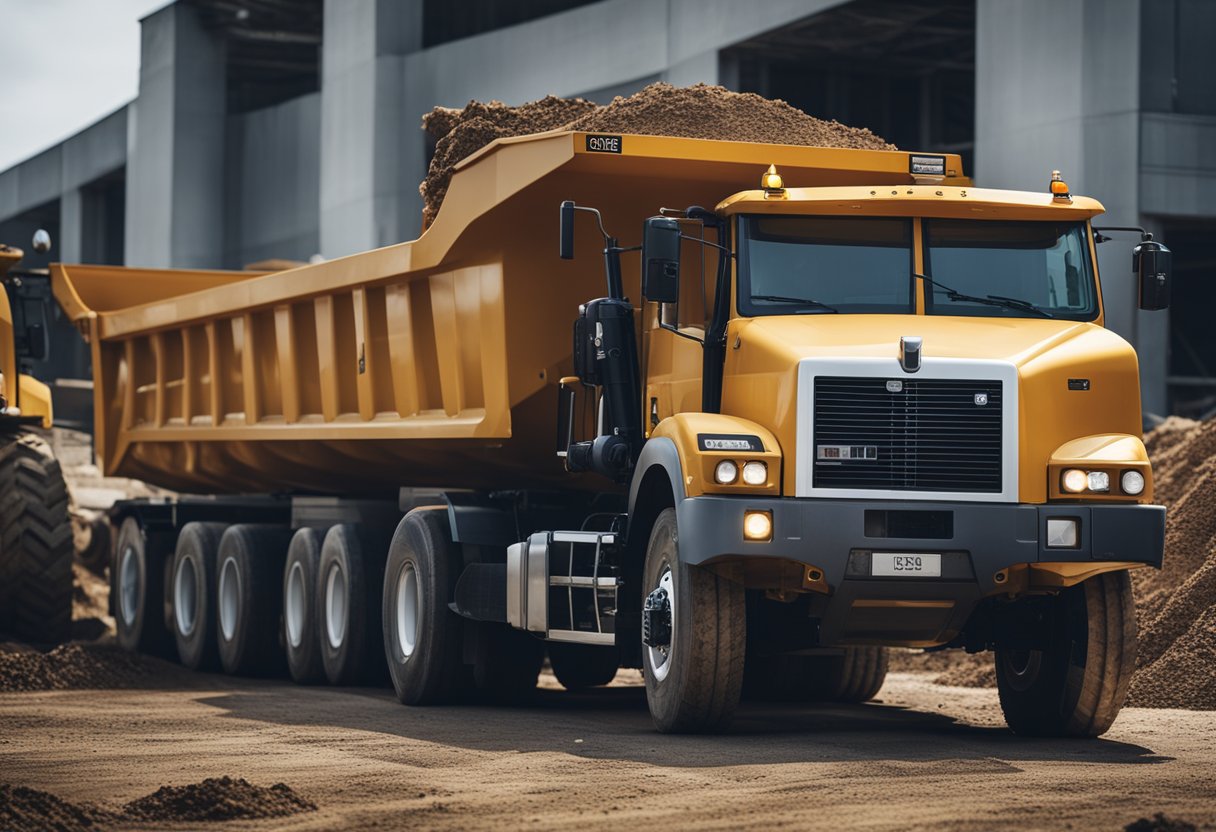
When considering the purchase of a dump truck, aligning the price with my availability of funds is crucial to ensure a sound investment.
Finalize Your Budget
Before making a decision to purchase a dump truck, I must thoroughly finalize my budget. It’s essential to assess all payment options, including upfront cash payments, financing through loans, or leasing alternatives. A detailed examination of my financial state will give me a clear picture of what I can afford, helping to narrow down choices and avoid overextending my finances.
- Budget Consideration
- Total cost of ownership
- Payment options available
Evaluate Long-Term Value
The initial price tag isn’t the sole factor in my dump truck investment. I should consider the total cost, which includes maintenance, potential repairs, and the lifespan of the truck. A more expensive model may offer greater longevity and reliability, which could lead to lower costs over time. I will evaluate trucks based on their long-term value to ensure my investment is justified.
- Important Long-Term Factors:
- Lifespan: Expected service years
- Maintenance: Typical costs and intervals
Seek Expert Advice
With myriad factors affecting the cost and value of a dump truck, seeking expert advice is a wise step. A reputable dealer can offer insights into the benefits of various models, while a certified mechanic can apprise me of anticipated maintenance issues. It’s also worthwhile to engage with a support network for operational tips, ensuring I make the most informed decision.
- Expert Consultation Sources:
- Dealer for purchasing options
- Mechanic for maintenance insight
Frequently Asked Questions
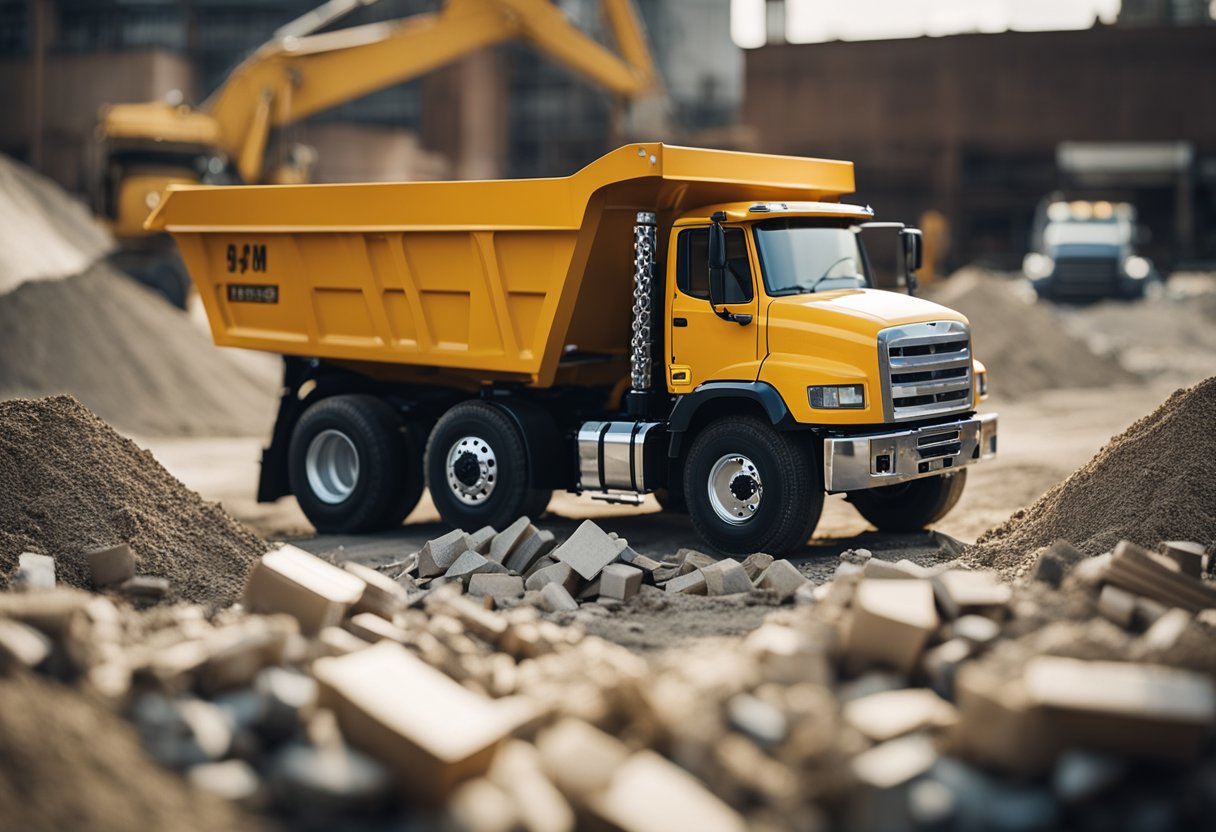
In this section, I’ll address common queries related to the costs associated with dump trucks, from acquisition to operation.
What is the average price range for a tri-axle dump truck?
The average price range for a tri-axle dump truck typically falls between $50,000 and $200,000. This cost varies depending on the truck’s condition, age, and specifications.
What factors influence the cost of a Mack Dump Truck?
Several factors influence the cost of a Mack Dump Truck, such as the engine size, the truck’s age, payload capacity, and the level of technology integrated into the vehicle systems.
Can owning a dump truck be considered a profitable investment?
Owning a dump truck can be a profitable investment, especially if it is used efficiently in sectors like construction or mining, where there’s a steady demand for hauling materials.
What are typical dump truck insurance rates?
Typical dump truck insurance rates vary widely by region and provider but can range from $2,000 to $10,000 per year, influenced by factors like the truck’s value, the driver’s experience, and the type of materials being hauled.
How lucrative is operating a dump truck business on a per-load basis?
The lucrativeness of operating a dump truck business on a per-load basis is highly dependent on the specific market, demand, and operating costs. Per-load payments can be more profitable in areas with high demand for material transport.
What are the expected expenses for a novice purchasing their first dump truck?
For a novice purchasing their first dump truck, expected expenses include the initial purchase cost, any necessary modifications or repairs, registration and permit fees, insurance, and regular maintenance. It’s vital to also consider the price of fuel and potential financing charges if the truck is not paid for in full upfront.

